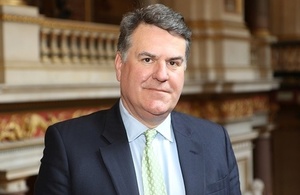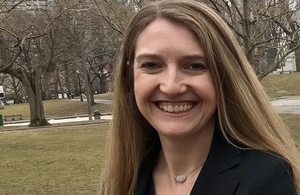Project to combat natural disasters among Newton Prize winners
- UK researchers work in partnership with other countries on global problems
- £1 million Newton Prize funds 4 pioneering research projects
- project winners focussed on strengthening food security and talking climate change
The annual £1 million Newton Prize is given to projects between the UK and Newton Fund partner countries around the world which help to solve global development challenges.
This year the Newton Prize focussed on partnerships between the UK and China, Indonesia and Philippines.
The 4 winning projects for 2019 are:
1. Protecting coastal communities from the impacts of climate change (awarded up to £195,000)
Researchers from the University of Huddersfield and the Institute of Technology Bandung in Indonesia have improved Indonesia’s communications and warning procedures for coastal disasters such as flooding and tsunamis, as climate change is increasing the frequency and severity of extreme weather.
2. Converting sewage into fertiliser (awarded up to £199,000)
Researchers from the University of Surrey worked with the De La Salle University, in the Philippines. They have found a way to convert sewage into nutrient-rich fertiliser to improve people’s health and prosperity. In the Metropolitan Manila region of the Philippines around three quarters of all sewage flows untreated into the local rivers and lakes. This pollution creates major health risks and has a damaging effect on the economy.
3. Improving the lives of people in cities and elderly people (awarded up to £198,000)
Researchers from Northumbria University and the Institute of Software, Chinese Academy of Sciences led work to improve transportation services and offer better access and suitability of services for the elderly.
4. A new way to monitor crops for global food security (awarded up to £459,000)
The Chair’s Award was given to a project between Universities College London, Institute of Agricultural Resources and Regional Planning, Chinese Academy of Agricultural Sciences to improve agricultural productivity. Food production is under threat from a combination of urban development, shrinking space for arable land, groundwater depletion and other challenges. Climate change is exacerbating these pressures. This UK-China research collaboration’s new method, using satellite technology, has improved accuracy of crop monitoring by ten percent. The state-of-the-art techniques are already being applied to other countries including Ghana, Argentina and the UK.
This is the third year of the Newton Prize, which is part of the Newton Fund. It builds research and innovation partnerships with 17 partner countries to support economic development and social welfare.
It also aims to develop research and innovation capacity for long-term sustainable growth. The prize allows researchers to take their existing Newton Fund projects to the next level.
Newton Prize 2020 will celebrate partnerships between the UK and Egypt, Jordan, Kenya, South Africa, and Turkey.
On 20 February 2020, the UK government will launch a new fast-track visa scheme to attract the world’s top scientists, researchers and mathematicians. This bespoke Global Talent route is another demonstration of the government’s commitment to supporting top talent in the scientific and research community.

